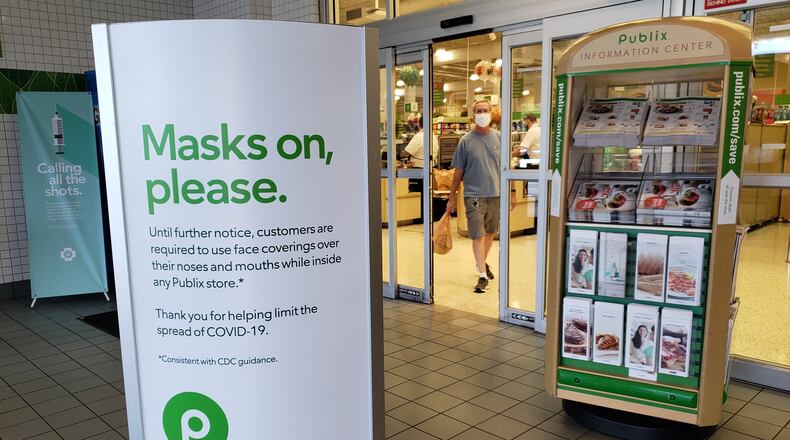Georgia officials released a report Tuesday showing a 3.6% drop in tax collections in September, but that doesn’t tell the story of the state’s efforts to recover from the COVID-19 shutdown this spring.
The state distributed an extra $240 million in tax money to local governments because of reporting errors that dated to 2015. Without that one-time payment, state collections for September were up more than 7% from September 2019, which was about six months before the pandemic struck Georgia.
It marked the third strong revenue month in a row for the state, which has seen an uptick despite the continuing battle to control the spread of the coronavirus and high unemployment. But concerns remain about what the state’s financial situation will look like next year, when the General Assembly comes back to Atlanta for the 2021 legislative session.
For the first quarter of the fiscal year, which began July 1, collections were up $365 million, or about 6.3%.
That’s far better than predictions in the spring, when officials were projecting billions of dollars in lost revenue as hundreds of thousands of Georgians remained unemployed and businesses closed or only partially reopened after the shutdown.
In June, lawmakers approved a budget that cut spending by $2.2 billion — including $950 million in basic k-12 school funding. Most agencies took a 10% cut in spending.
But Gov. Brian Kemp has remained relatively optimistic that the state will see a quick recovery from the COVID recession, and he told state agencies they wouldn’t have to endure more budget cuts next year. In fact, agencies requested more than $700 million in new spending next year.
The Kemp administration credited the governor’s early decision to end the economic shutdown in April for recent gains.
“Gov. Kemp’s measured approach to fighting COVID-19 has protected both people and their paychecks,” said Cody Hall, the governor’s spokesman.
The $240 million distribution to local jurisdictions in September came out of an audit the Department of Revenue did that found some businesses misreported how sales taxes they collected should be allocated. The agency said the businesses used software that contained errors that incorrectly directed sales taxes to the state that were owed to local jurisdictions, such as cities.
The gross sales tax take in September was up 4.2%, suggesting a decent gain in the consumer economy. However, because of the massive redistribution to local governments, the state’s net take was way down from September 2019.
Individual income tax collections, meanwhile, were up 11.2% in September, which may seem like a surprising jump considering hundreds of thousands of Georgians remain unemployed.
That gain was largely due to increased tax withholding of income. Georgia coffers got a big boost earlier this year when the federal government pumped up payments to the unemployed by $600 a week.
While that extra money ended in July, President Donald Trump in August ordered six weeks of temporary federal supplements to the unemployed amounting to $300 a week. Those payments went out in September.
Senate Appropriations Chairman Blake Tillery, R-Vidalia, said this summer that withholding income taxes due on the federal unemployment stimulus has helped — at least temporarily — the state’s bottom line.
At least some of that will be sent back out to the unemployed next year as refunds when they file their state tax returns.
“I am very proud of the economic recovery our state is experiencing, and I attribute that to Gov. Kemp,” Tillery said. “I am still nervous about the first quarter of 2021 and how the income tax refunds from unemployment will affect our budget.”
Democratic state Rep. David Wilkerson of Powder Springs, a certified public accountant, said the federal payments have helped keep the economy going.
“Once those stop, I think people are concerned,” Wilkerson said. “There is a whole group of people out there right now who can’t pay rent. You ask any legislator and they’ll tell you that’s what they’re dealing with.”
Trump on Tuesday put an end to months of negotiations over another COVID-19 stimulus package, saying he wanted to postpone talks until after the November election. If Trump loses, Wilkerson doesn’t expect Republicans to support more stimulus for the economy.
“State government is going to be hurting,” he said.
Besides income taxes, alcohol and tobacco taxes paid in September were up — a trend that’s been pretty consistent throughout the pandemic — while gas tax collections were down slightly.
The big drag in collections — also consistent throughout the pandemic — has been in hotel-motel taxes that visitors pay. Hotel-motel tax collections were off 29% in September and are down by one-third since the start of the fiscal year.
About the Author
Keep Reading
The Latest
Featured




